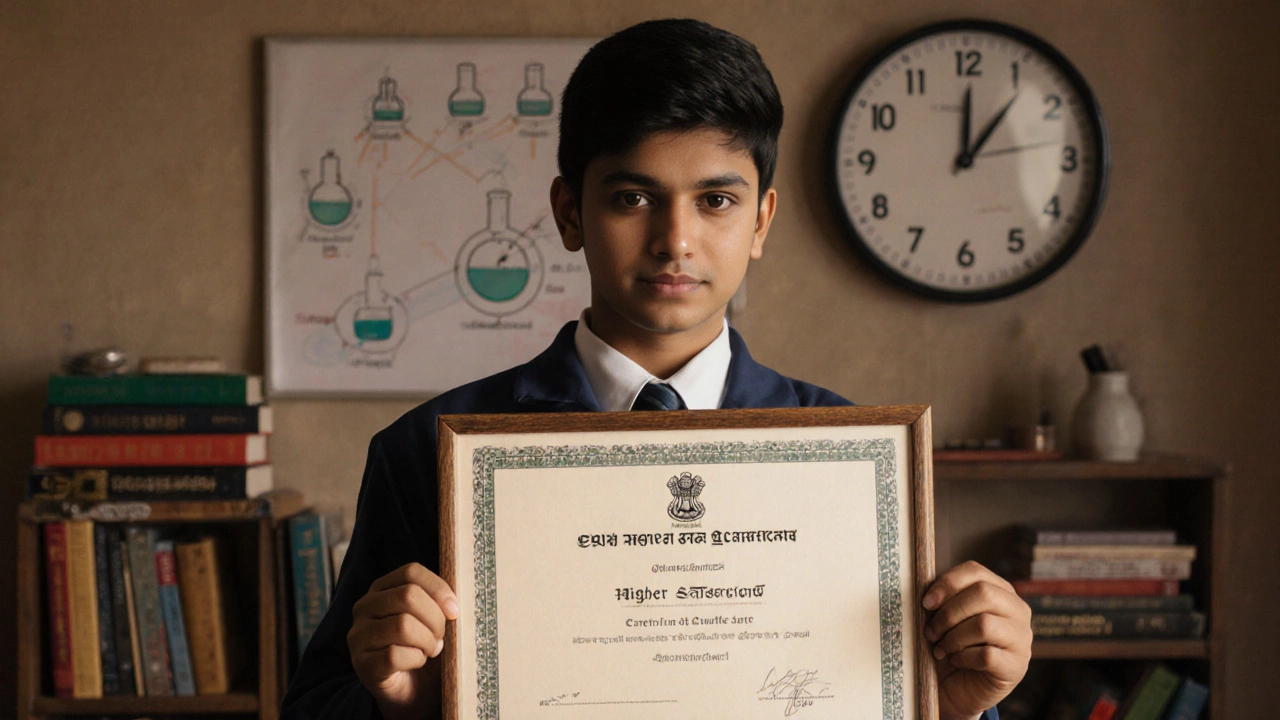Class 12 Degree Name: What It Really Means and How It Shapes Your Future
When you finish class 12 in India, you don’t get a degree, a formal academic qualification awarded by universities after completing a program of study. Also known as higher secondary certificate, it’s actually your higher secondary education completion credential—your ticket to college, competitive exams, and careers.
People often call it a "degree" out of habit, but that’s not correct. A degree, like a B.A., B.Sc., or B.Tech, comes after you finish class 12 and enroll in college. What you earn after class 12 is either a Higher Secondary Certificate (HSC) or Senior Secondary Certificate, depending on your board. The CBSE, Central Board of Secondary Education, the largest national education board in India, issues the All India Senior Secondary Certificate. State boards like Maharashtra HSC or Tamil Nadu SSLC do the same under their own names. These aren’t degrees—they’re the foundation that makes degrees possible.
Why does this matter? Because if you’re applying for colleges, scholarships, or even jobs that ask for "degree details," you’ll get stuck if you say "I have a class 12 degree." Admissions officers and employers know the difference. They’re looking for your board name, stream (Science, Commerce, Arts), and marks. Your class 12 result is the gatekeeper to everything that comes next—JEE, NEET, CUET, or direct admissions. It’s the first real filter in India’s education system, and it’s more important than most students realize.
What you study in class 12 also shapes your options. If you take Science with Physics, Chemistry, and Maths, you’re on the path to engineering or medicine. Commerce opens doors to CA, CS, or business degrees. Arts leads to law, design, or social sciences. Your stream isn’t just a subject list—it’s a career roadmap written in your marksheet. And if you’re aiming for top colleges abroad, like Harvard or MIT, they don’t care that you called it a "degree." They care about your board’s reputation, your grades, and whether you took challenging courses like AP or IB equivalents.
There’s no magic title on your certificate that changes its weight. But understanding what it really is—your final high school credential—helps you speak clearly, apply correctly, and plan smarter. Whether you’re preparing for IIT JEE, NEET, or just trying to pick the right college, knowing the difference between a certificate and a degree keeps you from wasting time on wrong applications.
Below, you’ll find real stories, expert advice, and practical guides on how to navigate what comes after class 12—whether it’s cracking the toughest exams, choosing the right path, or making sense of India’s confusing education landscape. No fluff. Just what works.
